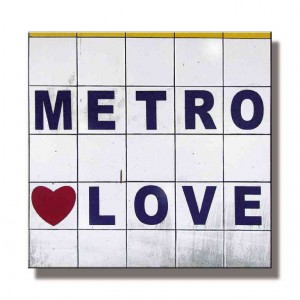“Manila, Manila/simply no place like Manila.” —Hotdog, circa 1970
For people in the 1970s and the ’80s, the song “Manila” was a “love song,” an ode not only to the city, but to the whole country.
As a person who has lived in Metro Manila all his life, Bong Banal of indie band Dystocia Curve admits that his great love for Manila is now profoundly challenged by what he considers a deterioration in the quality of life. His band’s latest album, “Metro Love,” attempts to express and explore this.
The opening song “Kapag May Traffic,” for instance, hints at a certain weariness brought about by monstrous traffic jams: “Kapag may traffic, iniisip kong lumayo na sa ’yo/Gusto nang mauna/imbes na sakuna abutin sa’yo!
“Pasingit” is a song that pleads for leniency from an unforgiving lover whom Bong likens to an unmerciful, road-hogging motorist.
In “Jailbreak,” he daydreams of escaping to a better place: “Kailan kaya ako makakasulat ng tono/makakasulat ng todo/nang ’di naiistorbo?”
He contemplates leaving everything behind in the song “Ubos na Gas,” betraying a bitter sense of disappointment over a relationship gone horribly wrong. Meanwhile, “Hindi Ko Na Kaya” outlines Bong’s fears of leaving the city.
“Maiintindihan” may be the most poignant number. It has Bong checking in on various types of people—their dreams, their aspirations—gently telling them that, while they may not understand it yet, there is a reason that their dreams have remained elusive.
While Dystocia Curve is not aiming to supplant the romantic view of Manila as this great city that we all used to love, it dares to raise the possibility that things may not be as romantic or as ideal as they once were.
The album “Metro Love” is available in Fully Booked High Street. For delivery orders and bookings, call (0916) 4758957 or (0920) 9018910, or visit the Dystocia Curve Facebook page.
